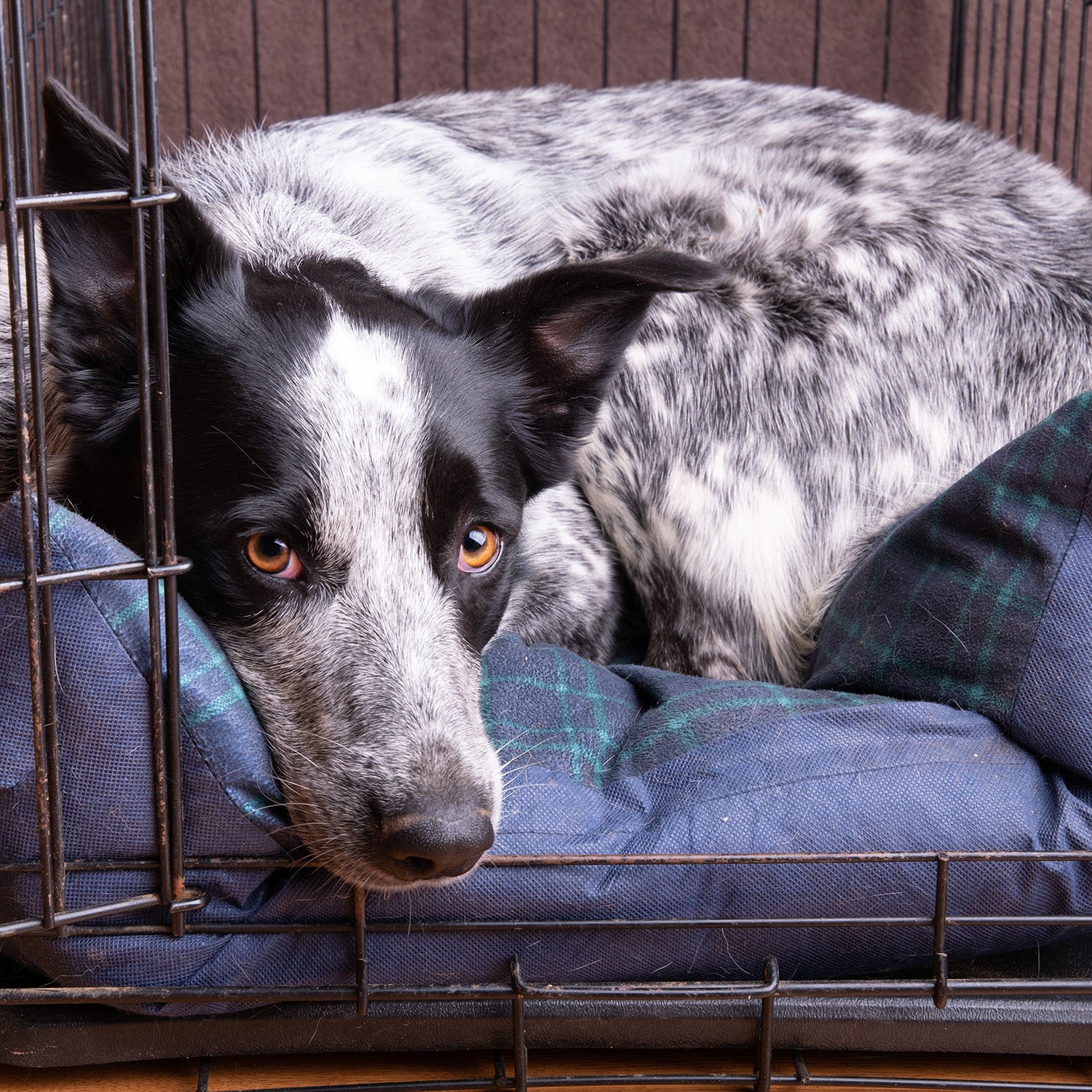Crate Training a Puppy at Night
Bringing a puppy home is a whirlwind of excitement, playtime, and, let's admit it, a bit of chaos. Amidst the joy of those first few days, there's a crucial task at hand: crate training. Now, if you're scratching your head wondering how to crate train a puppy, you're not alone. It's a journey many new pet parents embark on, often with a mix of anticipation and anxiety. But here's the good news: with the right approach, crate training can be a smooth, stress-free experience for both you and your furry friend.
The crate, contrary to some misconceptions, isn't a cage or a confinement. It's a cozy, safe space for your pup. Think of it as their personal bedroom where they can relax, sleep, and have some 'me' time. When introduced correctly, the crate becomes a positive, comforting space, reducing anxiety and aiding in essential routines.
Why Crate Training?
- Personal Space: Every pup needs a corner they can call their own. The crate becomes this haven, a place they associate with relaxation and safety.
- Potty Training: One of the top benefits of crate training is that it helps establish a potty routine, minimizing those little 'accidents' around the house.
Night One: The Big Challenge
The first night can be a tad emotional. It's a change for your pup, and it's natural for them to feel a bit lost. Position the crate in a quiet spot, but where they can still sense you're nearby. And here's a golden tip: a potty break right before bedtime can make a world of difference.
Daily Adventures with the Crate
Daytime is about balance. Regular intervals for play, meals, and those essential potty moments are key. Feeding them inside the crate can make them associate it with positive experiences.
Duration Matters
"How long should my pup be in the crate?" is a common question. A general rule is their age in months plus one. So, a three-month-old can manage four hours. But always be observant and adjust as needed.
Addressing Anxiety
If your pup shows signs of unease, tackle it with positivity. A treat, some praise, and soon, they'll associate the crate with good vibes.
Routine is King
Consistency is the secret ingredient to crate train a puppy properly. Ensure everyone in the household is on the same page, and your pup will soon settle into a comfortable rhythm.
Playtime is Essential
Outside the crate, it's all about fun. Ensure they get ample playtime to balance out the relaxation.
In Conclusion
Crate training is more than just introducing your pup to a crate; it's about building trust, understanding their needs, and ensuring they have a safe, comforting space. With patience, love, and consistency, your puppy will view their crate as a haven. And as you embark on nighttime strolls, consider our Hi-Vis Orange collar to keep them safe and visible. Here's to many happy, crate-trained days ahead!



